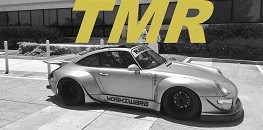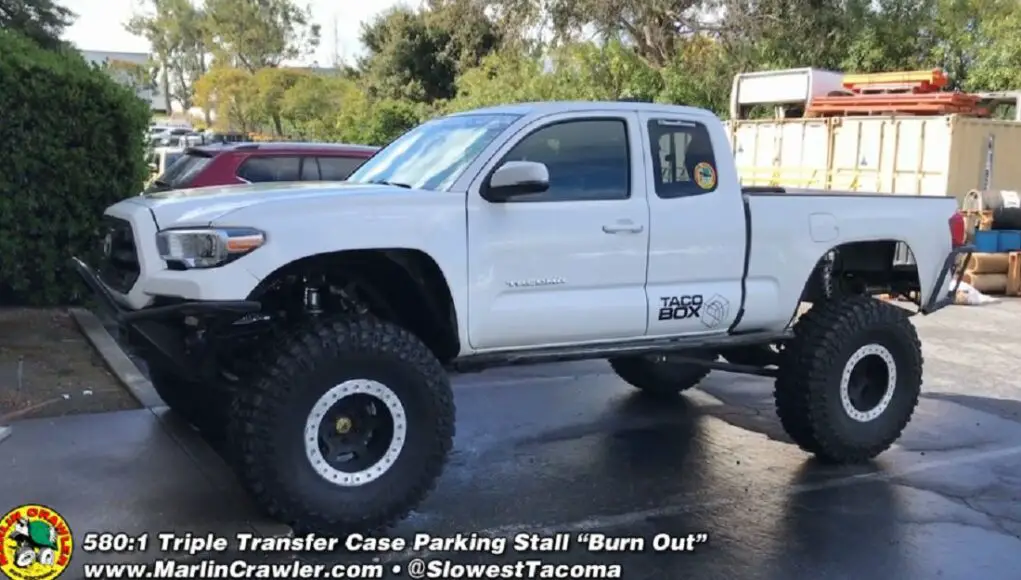Rock Crawlers will appreciate the simplicity and sheer torque this setup makes.
You’re familiar with smokey burnouts where muscle cars obliterate half their available tread in a matter of seconds, but have you ever seen a burnout at less than 1 MPH? Marlin Crawler, maker of robust transfer cases for the rock crawling community, recently showed us what has to be one of the slowest burnouts in the world with their 2016 Toyota Tacoma. What makes this demo Tacoma particularly special is its insane triple transfer case setup with a final drive ratio of 580:1.
Check out their burnout below.
It’s called a parking stall burnout because this Tacoma’s front wheels are perched up against a small concrete step. With the engine idling at just 600 RPM, there’s just enough power being sent to the rear to make those 37-inch tires slip but not enough usable power being sent to the ground to overcome that small concrete step.
So, how do you get to 580:1?
First, you have your first gear at 3.98:1 sent through a MC08 Transfer case adapter that, in low range, adds an additional 2.28:1 gear reduction.
Sandwiched between the MC08 transfer case and the stock Toyota Transfer case is Marlin Crawler’s Taco Box compact reduction unit that, in low gear, adds a further 4.7:1 gear reduction.
Then, we have the Tacoma’s stock transfer case with a 2.57:1 gear reduction.
3.5L V6 Tacos have a rear differential ratio of 4.3:1 but this Tacoma has a bespoke 5.29:1 rear diff ratio.
Multiply all that out, 3.98*2.28*4.7*2.57*5.29 and you get your 580:1 final drive ratio.
With a final drive ratio like that, experienced rock crawlers have dozens of speeds to choose from using different transfer case combinations that allows for a slower, more nuanced approach to tricky, trail situations.
Check out Marlin Crawler demo’ing this exact final drive ratio below.
This burnout might not be as exciting as a standard burnout but it’s certainly easier on your tires.




This truck is real monster off road,